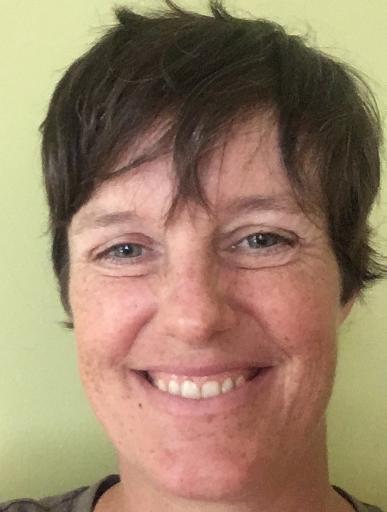
Amy Twigge-Molecey, PhD, OUQ, MCIP.
- Lecturer, Geography, Planning and Environment
Are you the profile owner?
Sign in to editResearch areas: Gentrification & displacement, neighborhood change, housing, land use planning, community development, community-university research alliances.
Contact information
Biography
Biography
Dr. Twigge-Molecey has been a lecturer in the Department of Geography, Planning and the Environment at Concordia University since 2009. She/they holds a BA in Gender & Sexuality Studies and a Masters of Urban Planning, both from McGill University and a PhD in Urban Studies from the Institut nationale de la recherche scientifique - Centre urbanisation, culture et société (INRS-UCS). Amy is an accredited urban planner and member of Ordre des urbanistes du Quebec and of the Canadian Institute of Planners. Additionally, she/they are an Adjunct Professor in the School of Urban Planning at McGill University. When Amy is not teaching in Montreal, she is an ACMG Apprentice Hiking Guide in the Canadian Rockies.
Teaching activities
URBS 393: Law & Regulation in Urban Planning.
URBS 300: Neighbourhood & Community Planning.
URBS 420: Social & Cultural Geographies of Montreal. This course explores the social and cultural geographies of Montreal with particular emphasis on how the spatial distribution of communities influences urban planning and public policy at the local and regional levels. Complex webs of identities and solidarities informed by socio-economic, linguistic, ethno-cultural, and sexual orientation factors shape the city living experience of individuals and populations alike. Through lectures, discussions, assignments and field trips, students are introduced to a variety of analytical perspectives that investigate the socio-cultural dynamics that contribute to shaping urban settlements, human-environment interactions and local social networks.
GEOG 485: Feminist Geographies. This course analyzes gender and socio‑spatial relations of power. Specifically, this course engages with feminist thought through its intersections with anti‑racist, queer, and emancipatory geographies. This is a discussion‑based seminar which includes personal reflection on space, identity and difference, resistance and agency, as well as broader global and historical contexts.
URBS 450: Urban Economic Restructuring.
URBS 498 N: Planning Property & Neighbourhood Change.
URBS 498D - Cities of Difference. This course explores how socially constructed 'differences' shape spatial relationships in cities.
Selected Publications
Twigge-Molecey, A. (2014). "Exploring Resident Experiences of Indirect Displacement in a Neighbourhood Undergoing Gentrification: The Case of Saint-Henri in Montreal." Canadian Journal of Urban Research 23(1): 1-22.
Twigge-Molecey, A. (2013). The Spatial Patterning of Wealth and Poverty in the Montréal Region, 1971–2006: A Literature Review. Toronto, Cities Centre - University of Toronto.
Rose, Damaris and Amy Twigge-Molecey. (2013) A City-Region Growing Apart? Taking Stock of Income Disparity in Greater Montréal, 1970-2005. 65pp. University of Toronto, Cities Centre, Research Paper RP222.
Twigge-Molecey, A. (2009). Is gentrification taking place in the neighbourhoods surrounding the MUHC? A census-based analysis of relevant indicators. Analysis Report RR09-02E. Montréal, CURA Making Megaprojects Work for Communities - Mégaprojets au service des communautés: 80.


